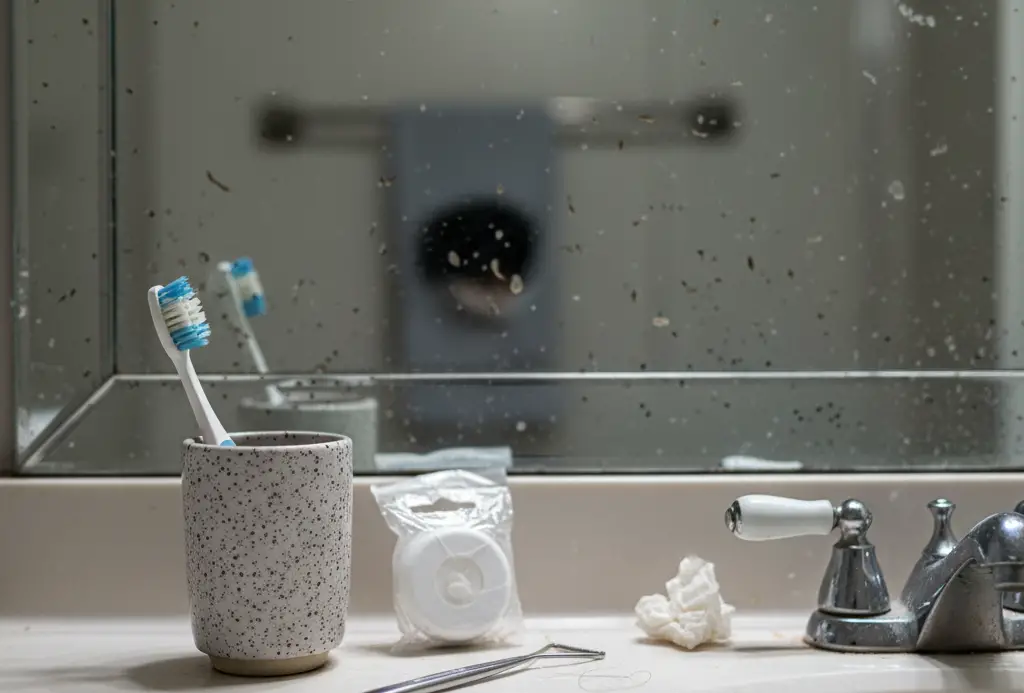Doctors Hate It When You Do These 8 Everyday Habits

We all have little quirks and routines we barely think about. Maybe you stay up too late scrolling on your phone, or you skip flossing because you’re “too tired tonight.” The truth is, while these habits feel harmless in the moment, doctors see the long-term consequences every single day. That is why some of the things we do casually make them quietly cringe.
Doctors do not hate these habits because they want to nag you—they hate them because they know exactly how the story ends if they are left unchecked. From heart disease to poor mental health, small lifestyle choices can pile up in big ways. The good news? With just a few changes, you can start building a healthier routine that your future self (and your doctor) will thank you for.
Here are eight everyday habits doctors really wish you would break—and what to do instead.
1. Ignoring Your Sleep Needs

“Sleep is optional” might sound like a badge of honor, but doctors know it is a ticket to trouble. Skipping quality rest messes with your mood, slows down your metabolism, raises blood pressure, and leaves your immune system weaker. Even if you try to “catch up” on weekends, your body cannot fully recover from a chronic lack of rest. Think of sleep as a repair shop for your body—if you do not give it enough time to do the work, the problems just keep piling up.
What to do instead: Aim for seven to nine hours of consistent sleep every night. Create a bedtime routine that helps you wind down—read, stretch, or sip herbal tea instead of scrolling. Consistency is the key here, even on weekends.
2. Sitting for Hours Without Moving

If you work at a desk, love long gaming sessions, or binge your favorite shows, chances are you spend more time sitting than your body would like. Doctors often compare prolonged sitting to “slow damage” because it contributes to weight gain, heart disease, diabetes, and poor circulation. Even if you exercise daily, sitting for hours without breaks still takes its toll.
What to do instead: Try the 30-to-3 rule—every 30 minutes of sitting, stand up or move around for at least 3 minutes. Walk around while taking calls, stretch between episodes, or set reminders to get up. Small breaks make a big difference.
3. Skipping the Small Hygiene Habits

Sure, you brush your teeth every morning, but how often do you floss or clean your tongue? Doctors and dentists alike know that oral health is about so much more than fresh breath. Poor dental care is linked not only to cavities and gum disease but also to heart disease and systemic inflammation. The bacteria in your mouth can travel and affect the rest of your body, which is why those “small” hygiene steps matter so much.
What to do instead: Floss once a day and take the extra few seconds to brush your tongue. These tiny steps add up to better heart health, fresher breath, and fewer painful dental bills down the road.
4. Skipping Routine Checkups and Lab Work

Many people only see their doctor when something feels wrong. But here is the problem: some of the most dangerous conditions, like high blood pressure or type 2 diabetes, often show no obvious symptoms in the early stages. Doctors hate when patients skip preventive care because it takes away the chance to catch problems early—when they are much easier to manage or reverse.
What to do instead: Schedule annual checkups and get basic lab work done regularly. Know your baseline numbers—blood pressure, cholesterol, blood sugar—so you and your doctor can spot any red flags before they turn into major issues.
5. Overindulging in Processed Foods and Sugar

Doctors are not shocked when patients admit to loving fast food, soda, or chips. What frustrates them is the long-term health damage these foods cause when they are part of your daily diet. Excess sugar, salt, and ultra-processed ingredients contribute to obesity, heart disease, diabetes, and chronic inflammation. Even a “just one snack a day” habit can add up over time.
What to do instead: You do not need to give up all your favorite treats, but you should balance them. Read labels and choose foods with real, simple ingredients. Replace just one processed snack with a healthier option—like fruit, nuts, or yogurt—and build from there.
6. Burning the Midnight Oil with Screens and Caffeine

Doctors hear this all the time: “I just need one more episode,” or “I had to answer emails before bed.” Add in an extra cup of coffee or an energy drink the next morning, and you are stuck in a cycle of sleep loss and stimulation that messes with your body’s natural rhythms. Over time, it can trigger weight gain, anxiety, and hormonal imbalances.
What to do instead: Set a nightly cutoff for screens, ideally one hour before bed. Switch your caffeine to mornings only and avoid it in the late afternoon. A calming nighttime routine helps your body get the deep rest it desperately needs.
7. Forgetting to Drink Enough Water

If you often rely on soda, coffee, or juice instead of plain water, your body may be paying the price. Doctors often see patients who do not realize how much dehydration affects mood, digestion, energy, and even skin health. Water keeps everything in your body running smoothly, and skipping it leaves your systems struggling.
What to do instead: Carry a reusable water bottle everywhere you go. Aim for at least two liters of water daily, adjusting for your size and activity level. Replace just one sugary drink with water or sparkling water each day, and your body will thank you.
8. Ignoring Stress and Mental Health

Doctors know better than anyone that stress and emotional health affect physical health in a major way. Patients who brush off stress often show up with insomnia, high blood pressure, digestive issues, or even chronic pain. Ignoring mental health is like ignoring a leaky roof—you may not notice the damage right away, but it will only get worse over time.
What to do instead: Build mental wellness into your routine. That could mean journaling, meditation, therapy, walking outdoors, or simply carving out quiet time. Taking care of your emotional well-being is just as important as eating well or exercising.
Final Thoughts

Breaking bad habits does not mean reinventing your whole life overnight. In fact, the best way to change is to start small. Pick just one habit from this list and commit to improving it this week. Maybe you go to bed 30 minutes earlier, swap soda for water, or floss before brushing tonight. Those tiny wins build momentum, and over time they add up to powerful, lasting change.
Doctors are not your enemies. They are your teammates in health—and they would love nothing more than to see you thrive without preventable health problems holding you back. So, start today. Drop one of these everyday habits and replace it with something better. Your body will thank you, your future will thank you, and yes—your doctor will probably thank you too.
Leave a Reply